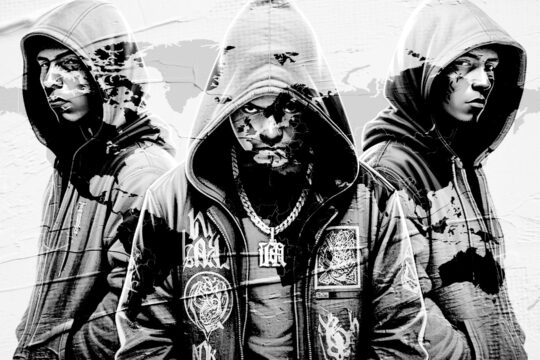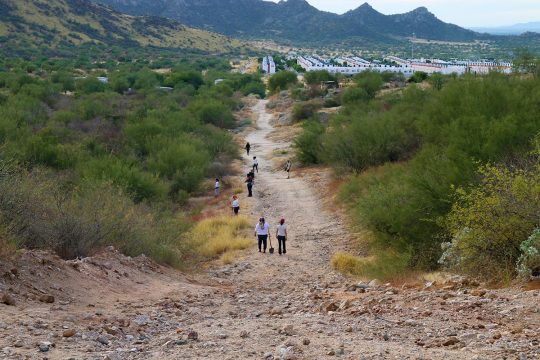One afternoon, young Mexican engineer Jethro Sanchez was out partying. Hours later, he was dying, his father says -- burned with acid and choking on earth as soldiers buried him alive.
Mexico called in the armed forces a decade ago to fight drug crime. But critics say the military has not been trained for that kind of police work and has ended up torturing innocent suspects.
Now the Mexican Congress is debating proposals to formalize the use of the armed forces for public security, raising fears that the eventual reform will shield soldiers who commit abuses.
His father Hector Sanchez, 63, who makes a living recycling auto parts, speaks in a choked voice as he stands next to the young man's grave.
Jethro Sanchez "was studying for his master's degree" and was out celebrating a successful business investment, he says -- not a drug trafficker as the military alleged.
"There was no reason for them to do what they did to him."
As politicians argue over the new law, he says he wishes more relatives of torture victims would come forward.
- Acid in the face -
On May 1, 2011, Jethro Sanchez, 26, was at a local fair in Jiutepec, a town south of Mexico City, to celebrate the victory of a football team he had sponsored.
A street fight broke out and Jethro Sanchez was detained by police, who handed him over to the military, claiming he was a drug trafficker.
Soldiers threw acid in his face and buried him, Hector Sanchez claims. The body was found two months later in Puebla, 150 kilometers (95 miles) to the east.
After a six-year legal fight, the grieving father is hoping that three soldiers arrested in connection with his son's death will finally be tried and sentenced for the crime.
- 'Blank check' for abuse? -
In December 2006, Mexico's then-president Felipe Calderon turned to the military to wage his war on drugs. He argued that the police were too corrupt for the task and needed cleaning up.
Since then, non-governmental organizations such as Amnesty International have documented scores of similar cases of torture and abuse in the country.
"For years, we have warned that involving armed forces trained for combat in internal matters, especially in the prosecution of crime, can be a big mistake," said Juan Mendez, the former United Nations envoy for torture, who wrote a report on Mexico.
Currently, more than 50,000 military personnel are deployed throughout Mexico to help fight crime.
Organizations opposed to the proposed internal security law fear that it will give nefarious elements within the military a "blank check" to commit abuses.
Mexico's Congress has been studying proposals from various parties on the military's policing role since last September.
Details of the proposals have yet to be published. But the issue has raised so many red flags that the law may not be approved before the current parliamentary session ends on April 30.
- Soldiers for cops' job -
The military has defended its record in the face of torture allegations.
"We are not systematic violators of human rights," said General Jose Carlos Beltran, the military's human rights director, in March.
Alejandro Ramos, head of the legal affairs unit of the National Defense Secretariat, said the armed forces have felt "uncomfortable" doing police work.
"If they think we don't use the right kind of weapons or have the right police training, then the armed forces were not what they needed," he told AFP.
- 'Sexual torture' -
Claudia Medina, 36, was also accused of drug trafficking when she was taken from her home in the eastern city of Veracruz in 2012.
She was taken along with her husband, who remains imprisoned.
"We were blindfolded and held incommunicado for about 39 hours, and during that time I was subjected to physical, psychological and sexual torture... they gave me electric shocks, punched and kicked me," she says.
"In order to stop the torture, I told them I would sign any confession."
She says that on the way to be questioned by prosecutors, her captors threatened to torture her three children if she did not comply.
Scarcely able to walk, she was paraded in front of reporters along with other alleged criminals, an arsenal of weapons and a large cache of drugs.
She was later acquitted of all charges.
- Pesos 'for the bother' -
Hector Sanchez fears his son, who was tall and athletic, was tortured for hours.
Forensic results confirmed that Jethro Sanchez had been "doused with hydrochloric acid and that he had inhaled earth, meaning he was buried alive," his father says.
A year after the discovery of his body, his family created an educational center in his honor to teach mechanical engineering.
On the day the center opened, a general appeared uninvited and offered Hector Sanchez 1.3 million pesos ($68,000) "for the bother," he says.



